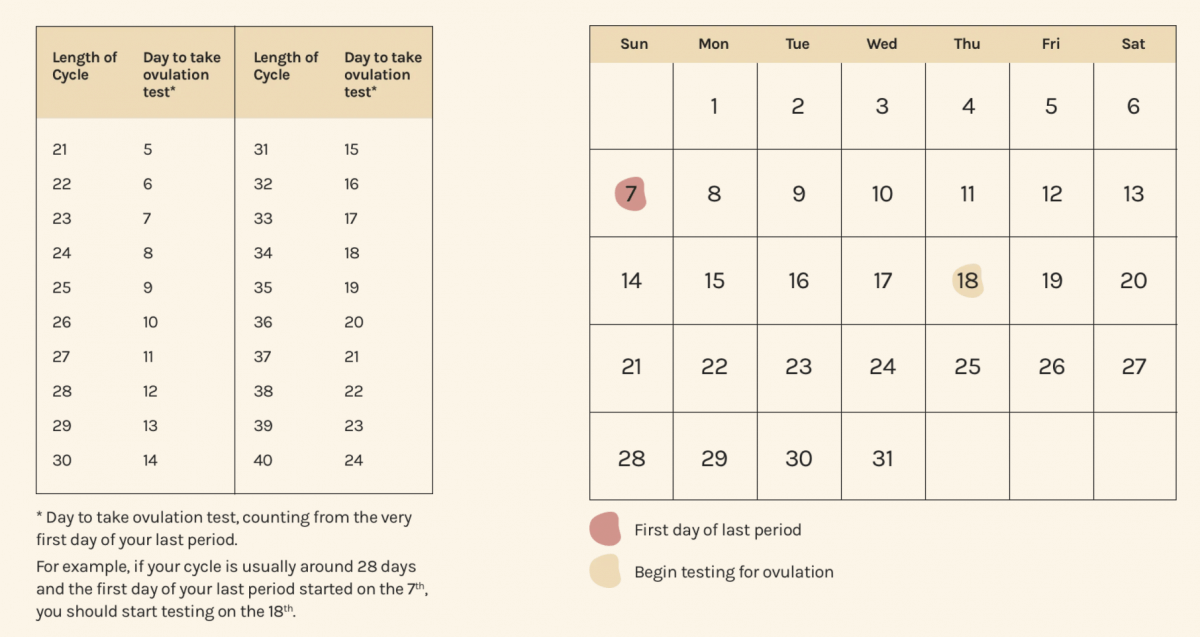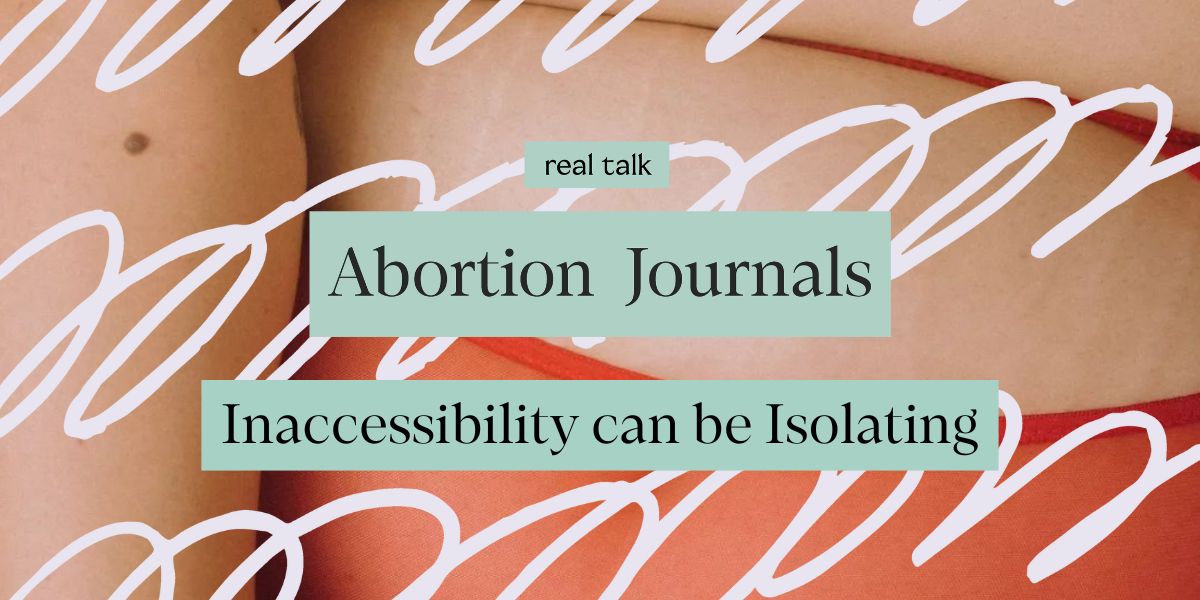What is an ovulation test? Here's what you need to know

Ovulation tests are key tools to get in the know on your body, your cycle, and more. At their core, ovulation tests tell us when we are the most fertile, critical information for women who are or are not trying to get pregnant. Whether you’re trying to conceive or not, knowing your ovulation window can teach you a lot about your body and cycle. If you’re not sure what an ovulation test can do or why you should take one, you’re not alone! Many people don’t know a lot about these tests and why they are so helpful. We’re here to set the record straight.
ovulation-tests
1. What IS ovulation?
Once each month, an egg is released from one of the ovaries and is available to be fertilized. During this window of time, your fertility peaks, making it the best time to try to conceive (or the best time to abstain from sex if you are not ready to get pregnant). Ovulation usually occurs in the middle of the menstrual cycle, but every woman’s cycle is different and your own ovulation can vary from month to month. It can take a few cycles to drill down exactly when you ovulate.
2. What is an ovulation test?
Ovulation tests tell you, well, when you are ovulating. They let you know when you are in your fertile window, and therefore most likely to get pregnant. Just like a pregnancy test, ovulation tests detect a hormone in your pee. The hormone that ovulation tests detect is called LH, or the luteinizing hormone. The test measures for high levels of LH, which surges 24-48 hours before you ovulate. When the ovulation test detects a surge, it will display a positive result. This means that ovulation will likely happen in the next 24-48 hours, and you will be most fertile in that window. We broke down how to read results (jargon-free), to make detecting ovulation even easier.
There are only a few days in each menstrual cycle when you can get pregnant, which is why it’s important to know your most fertile days. Because you’re most fertile during ovulation, ovulation tests can help increase your chances for success when you’re trying to conceive as they are used to determine your most fertile days. On the flip side, knowing when you’re most fertile is important for trying to abstain from getting pregnant, too. Remember: no birth control is 100% accurate, so using condoms in addition to your method of birth control (especially during ovulation) is a good practice.
ovulation-tests
3. What do ovulation tests measure?
Estrogen levels rise in your body the days before a surge of LH (luteinizing hormone) and help you prepare for ovulation. This rise of estrogen indicates that you are entering your high fertility window which normally lasts four or more days. Your peak fertile days coincide with a surge of LH, as your LH signals the ovary to release an egg. Ovulation tests measure for high levels of LH in your urine.
4. How soon after ovulation can you take a pregnancy test?
If you’re one of those people who just can’t wait, technically the earliest you can take a pregnancy test is seven to ten days after ovulation—traces of hCG start showing up in your pee about 10 days after the egg is fertilized. That means a woman could get a positive result on a pregnancy test several days before she expects her period to start.
pregnancy-tests
5. Is ovulation unpredictable after quitting birth control?
Usually ovulation will resume two to three weeks after you stop the pill. This may take longer for older women and for women who have been on the pill for a very long time, and in some cases a woman’s ovulation may not become predictable again for a few months. Like everything relating to the menstrual cycle, returning to a predictable ovulation after quitting birth control varies between person-to-person. Our friends at Twentyeight Health wrote about the top 10 myths about birth control pills, to answer other fertility questions.
6. When should you begin an ovulation test?
Think of your usual cycle length, AKA the number of days from the first day of your last period to the start of your next period (period tracking apps are a great way to get this info). Based on this number, refer to the chart below to determine your best day to test. For example, if your cycle is usually 28 days and the first day of your last period started on the 7th, you should start testing on the 18th. Continue testing from that date until you see a positive result displayed. That’s why we include 7 tests in our ovulation test kits, for easy & consistent testing!

7. How do I take an ovulation test?
Taking an ovulation test is easy! All you have to do is pee on the stick and wait 10 minutes for the result to appear! It’s just like taking a pregnancy test. It’s best to take an ovulation test mid day, and around the same time each day.
8. How do I read an ovulation test?
There are three possible results you could receive from taking the ovulation test. If your ovulation test result is negative (AKA, no LH surge is detected), only the control line will appear on the test or the test line will appear lighter than the control line. If your ovulation test result is positive (AKA, ovulation will likely occur in the next 24-48 hours), both the test line and the control line will be visible and the test line will be darker than or equal to the control line. Finally, your result could be invalid, in which there is no distinct pink-purple line visible both in the TEST area and CONTROL area. Take another test if this happens!
9. Will an ovulation test be positive if pregnant?
Ovulation tests detect LH, which is similar to hGC (human Chorionic Gonadotropin) that pregnancy tests detect. If you’re pregnant, you might get a faintly positive result on an ovulation test that’s actually detecting hCG, not LH. This is more likely to be true the further along you are in pregnancy since your levels of hCG in urine will be higher. Because of this, it is best to just use an ovulation test to predict ovulation, and a pregnancy test to detect pregnancy.
10. What if I’m not ovulating after taking a lot of tests?
If you keep getting a negative result from your ovulation tests, it is best to consult your doctor. Just remember that the process of conceiving can take time. Try your best to stay positive and hopeful! Stress can also affect your menstrual cycle.
Ovulation tests take the guesswork out of timing your cycle, so you can know exactly when you are most fertile. They make the process of trying to conceive so much easier and more predictable. If you aren’t using ovulation tests already, there’s no time like the present.
ovulation-tests
Keep Reading

Navigating birth control and sexual health in a larger body
Apr 23

In My Words: The power of shooting your shot
Apr 18

What's going on with the Arizona abortion ban from 1864?
Apr 11










